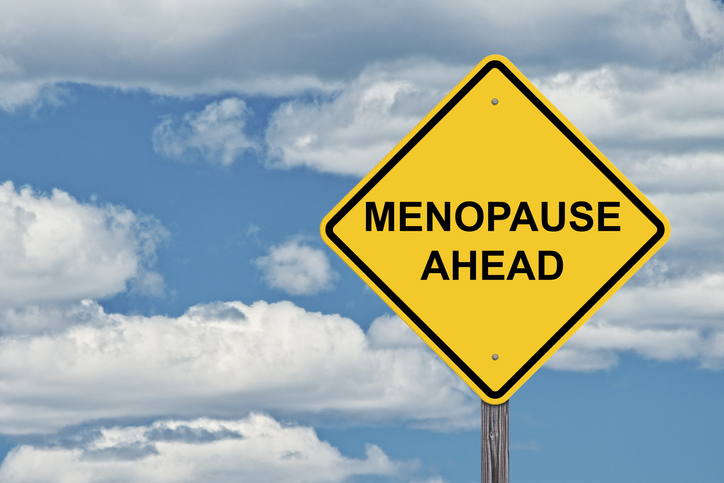Are Bioidentical Hormones the Answer to HRT?
Can bioidentical hormones provide a safer and more effective way of handling menopause problems?

As World Menopause Day approaches I thought it was time to have a look at the options available for this significant life transition.
I am a long-term advocate of bioidentical hormones for hormonal balance in women and that view is shared by bioidentical doctors like Dr Tony Coope in the UK as well as hormone experts in the US and health experts like Patrick Holford.
They agree about the beneficial effect of bioidentical progesterone on hormonal symptoms from puberty to post menopause.
Dealing with side effects that are debilitating such as night sweats, or reducing the risk of hormonal cancers and heart disease are why women look for options and I am a firm believer in a woman’s right to choose what is best for her.
That may be conventional HRT for some, but it can also be alternatives such as bioidentical hormones, herbs or other therapies that address hormonal issues.
My personal view
I have been writing on health and wellness for over 40 years and my view is based on my personal experience of being on HRT and trying many other alternatives.
I was in my 30’s and working in broadcasting at the time. I was suffering flushes and sweats, which is not a good look when on TV! I tried HRT but despite being switched brands 3 times, it simply did not agree with me and I found the side effects worse than the flushes.
I then investigated other options and was lucky enough to meet the late Dr John Lee, the pioneer of bioidentical hormones and found the answer I had been looking for.
I believe in choice, and for many like me HRT was not a suitable option, but bioidentical hormones are.
Through peri-menopause to post-menopause they helped me because they produce the same amount of hormone that my own body would naturally produce to keep me balanced.
I know they have been beneficial for other women with PMS, PCOS and those looking for help with fertility and reducing the risk for miscarriage as well.
Dr Tony Coope M.B; Ch.B; D.Obst.R.C.O.G
In a long career in Medicine, I have never before seen anything like the situation we are in now – basic services stripped to the bone, vital therapeutics in short supply, and doctors and health workers constantly over-stretched and increasingly difficult to access.
But, there is a silver lining. If we accept that what we knew previously has gone for quite some time, possibly for the long term, then as a society we have at last to take more responsibility for our own health, for our own sake, and for the sake of our health workers.
In the field of hormone replacement, for instance, without the need for a great deal of medical input, women can soon gain enough understanding (from websites such as this, and doctors or therapists well-versed in bioidentical hormones), to manage many of the symptoms of menopause and other conditions – accessing bioidentical progesterone and oestrogen products directly.
We should be looking to products that are much more suited to the human body, and safer and more effective than standard HRT with its synthetic progestins.
Patrick Holford, BSc, DipION, FBANT, NTCRP
As the founder of the Institute for Optimum Nutrition, with his mentor, twice Nobel Prize winner, Dr Linus Pauling as patron Patrick Holford is the author of over 30 books on health and nutrition including one on hormone balance.
A keen advocate of bioidentical hormones over many years, he says that even in hormones which are molecularly very similar, (such as progestins) the difference in effect can be huge.
Non-bioidentical progestin is added to regular HRT to reduce the risk of womb cancer which is raised by giving oestrogen on its own. You can get an idea of how big the difference is between bioidentical progesterone and progestin from their effect on pregnancy.
Progesterone is the hormone that the body makes to support pregnancy – it’s used as part of infertility treatments – while progestin raises the risk of congenital abnormalities and miscarriage.
According to NHS Direct, other progestin side effects include breast tenderness, headaches, mood-swings and depression.
But there are plenty of people who find, quite apart from the possible long-term risks of regular HRT, that it just doesn’t agree with them, while a switch to bio-identical HRT transforms them.
Helpful information:
Women need both progesterone and oestrogen throughout their lives: oestrogen helps keep skin supple and moisturised and gives us our rounded, feminine shape.
Progesterone is vital to protect against excess oestrogen and reduce risks such as hormonal cancers, heart disease, strokes and osteoporosis that associated with excess oestrogen.
The key is to have these hormones in balance but at menopause women often put on weight. Progesterone levels drop significantly at this time, but oestrogen continues to be produced in the fat cells of the abdomen, belly and thighs and so you end up with an excess of oestrogen over progesterone – this is oestrogen dominance.
The work of the late Dr Lee carries on through the many doctors worldwide working with bioidentical hormones and through his series of books on ‘What Your Doctor May Not Tell You About…’ on Premenopause, Menopause, Osteoporosis and Breast Cancer.
Not sure which hormone you might need to supplement? This article can help.
https://anna.blog.wellsprings-health.com/which-hormone-or-hormones-might-you-need/


















